Hello Friends! This next blog posting chronicles my most special experience in the RSA thus far, my time in Pietermaritzburg (PMB). Those of you who know Evan Milligan might remember that he spent a year here studying at the Lutheran Theology Institute (LTI) about 3 years ago. I wrote Evan before coming here, joking that I hoped he’d made a good impression so that people would be kind to me by extension. I suppose I was worried that librarians might be asking me to pay overdue library fines for books that were 3 years past due : ) haha. Indeed, I wrote Evan in jest, but what I experienced in PMB was such a genuine outpouring of love that I’m shocked by the impression my brother made while he was here. I’ll give you one example, at the theology conference I went to (where many LTI students were also in attendance), I met a guy named Cyriaque. I was introduced as “Evan’s sister,” and within seconds this warm, loving guy had the broadest smile on his face and was near to tears remembering his time with Evan. The words that came out of his mouth as he remembered the Milligans were so special that I wrote them down so I could relay them to Evan and MM. He said, “You know, Evan and his mother made me to love African Americans. I didn’t know African American mothers would be like African mothers, but she was so loving!” I seriously think Cyriaque was near to tears and so was I! (smile) And so for the rest of my visit, Cyriaque treated me just like his sister by extension through the Milligans. (Evan, he said that if you didn’t remember who he was, to tell you he was the guy who liked to wear bright colors – what’s funny is that a few days later, I saw a picture of Evan and in the foreground was a guy wearing NEON PINK pants! Haha). After the conference sessions, Cyriaque walked me back to my housing to make sure I was safe and gave me his contact information so that we can go to church together the next time I am in Johannesburg on a Sunday. Another of Evan’s friends is Sinenhlanhla Ngwenya (pronounced “Snay” for short). What this sister did for me … I can’t really explain. She housed me for 5 days, fed me, taught me to cook Pap and chicken and spinach, treated me like a sister as we slept in the same bed with her feet at one end and mine at the other (haha) accompanied me everywhere, made me ride in a combi !!! gave me motherly advice, paid for my transport, got up at 6:00 a.m. to hand-wash our laundry and hang them on the line to dry, then collected and ironed them, and on and on and on. Those are the specific things she did for me, but more special still was how she did them! She was so gracious, never once making me feel like a guest, but truly like her little sister. When I forgot to bring my towel and soap, she let me use hers. She taught me that TRUE generosity is sharing. She and I bonded as we carried bags of groceries for half a mile from the nearest Checkers grocery store. She let me indulge in my newfound guilty pleasure (the soap opera “Generations” (Monica Ss, you would appreciate the drama :) Sine taught me about Zimbabwe. She walked me to the bus stop and waited for the bus to leave so that she could wave goodbye. She sat me down and prayed for me before I left, and called to make sure I had arrived safely in Pretoria. She has invited me to come back in July, and I plan to spend my last week in South Africa with my big sister Sine. Since I left, she has been on the lookout for material so that I can get an African dress made for me, and her cousin in Pretoria may braid my hair for me before I leave. Haha. I hope that as I tried to also be a blessing to her, that she knew how much I appreciated her. There were sooo many more people that I met through Sine (Stella who took my friend Brian and I to lunch, Lucy Chebombo who cooked an AMAZING dinner for us, Fulata who is going to cook cassava for us when I return in July, the girls who taught a remedial pupil to cook Pap (which is stark white, stiff, sticky, starchy cornbread). I’ve got the recipe, so I’ll try to make it when I return, along with the spinach recipe that I need to get from Sine. Sine also took me to watch Nigerian movies with a family that lives on the campus … now about these Nigerian movies. I was completely unfamiliar with them before I got here, but apparently they’re something of a phenomenon here. It’s essentially a soap opera in movie form, filmed in Nigeria, revolving around themes of witchcraft versus Christianity, mothers-in-law versus wives, … Here in SA Nigerians have a very bad reputation as corrupt businessmen. These movies do little to counter that stereotype … in fact, they probably contribute to it, but at the same time, they are entertaining. I suppose the Dave Chappell satire v. comedy analysis is relevant here. On the topic of Nigerians, I have a friend who was commenting that she must find me an African husband:
“Christion,” she says, “first we’ll look in Zambia, Zimbabwe, Malawi, … but Christion … stay away from Congo and Nigeria.” When she said it, I laughed and asked, “But surely you don’t think ALL the men from Nigeria and Congo are bad, eh?” to which she replied, “eh, eh, eh, BUT (pausing for emphasis) “we can’t take chances.” That was the best laugh all weekend. But in all fairness, I do know of at least one good fellow from the DRC :)
In talking to Sine, I realized that sometimes he would say one thing but mean another. For example, she has a phrase, “It’s fine.” The word fine isn’t uttered quickly as in the U.S., but slowly, dipping in the middle, so that I thought she might be saying “It’s fine,” but meaning, “It’s not fine.” I came to realize that sometimes she really did mean it was fine, and other times (like when I was insisting that she let me do some chore) she really wanted to do the dishes, but wasn’t going to fight me for it. But for a long time, it was difficult for me to decode her language cues. And then I had a revelation. Perhaps this is how men suffer. Just as I was not able to decode Sine’s real meaning (due to differing cultural intonations, syllable emphasis, and body language) perhaps this is what men suffer from on a more routine basis. I really had to study Sine to decipher her meaning, and even then I wasn’t sure, so I have more empathy for those who don’t pick up on the subtle clues used to contradict their words. Figuring people out is an art.
So the people I met in PMB were really terrific, and so were the places. Sine took me to the art gallery, which was beautiful! We briefly met one of Evan’s friends, Brian Khoza, there but we were late so he had to leave to visit Durban : ) What I most appreciated about the museum was the way in which the artwork was organized. None of this hanging-pieces-few-and-far-between business. Instead, several works were jammed onto a wall, some higher and some lower but in an intentionally chaotic way that pleased the eye. There was one room dedicated to English landscapes and portraits, but much of the art had a folksy flair, bright colors, political messages, symbols, and (this I really loved) every now and then beside a painting there would be a framed clipping from the newspaper from an everyday reader who had written what he/she appreciated about one of the pieces of art. They might be commenting on the art’s history, or perfect linear organization, general appeal, or their interpretation of the work. It was the next best thing to having a companion because you could contrast what you appreciated in the picture with their experience in viewing it. I wish that more American museums offered this sort of interactive approach.
One thing I’ve neglected to mention is how Sine and I got to all these places – public transport, commonly referred to as a “combi.” It’s essentially a minivan seating 15 passengers. There must be a science to riding these things, like how to time your entry so you don’t get crammed in 4-deep on the back row, but I was not instructed on the science of riding a combi before-hand, so that was my initiation : ) When 15 people pack in, the driver hops in and people start passing their Rand forward. It’s 4 Rand per trip (less than a dollar). The combi drops passengers off in a central station and they can either walk or catch a private taxi from there. Now, I’ve heard that it can be dangerous to ride in one because the shocks on them are so worn and the drivers are crazy, but my experience was a very pleasant one, and it felt like I was really experiencing South Africa the way most people do. This was an intentional effort of Sine’s part, and I’m grateful that she did it for me : ) Equally pleasant was the ride back to Pretoria. I took a Greyhound bus and for 7 hours, was privy to seeing the countryside. Most of it was desert-ish with giant ant hills, dry shrubbery, but also haphazard lakes and streams and a dam that channeled water in such a way that it was like a water show. Mountains, giant cliffs, really beautiful.
Now, you won’t believe this, but it was perfect timing that I returned to Pretoria on the day I did, because the very next day, it snowed in Johannesburg! I’m serious. Last night it snowed about an inch or 2 in Jo’Burg for the first time in 26 years. Curiously, Pretoria is just 40 min. northeast, but we didn’t get any, though it is crisp and cold here.
I should also mention the theology conference that we attended. Accustomed to studying the law, the vocabulary and theories were sometimes over my head, but there were some lectures that proved very interesting. For example, the theme of the conference was “Martyrs & Saints,” and one of the reoccurring questions was the extent to which African cultural practices might be seamlessly merged with Christianity, which often has a distinct western flavor to it. A more specific question was whether and how ancestor veneration could fit into an African form of Christianity. Some took the position that ancestor veneration was the equivalent of ancestor worship and cautioned against it, but others were of the view that just as Abraham was an ancestor whose faith and deeds were to be honored and remembered, so too can we celebrate African ancestors preceding Jesus whose deeds were worthy of commemoration. If this debate were taking place in the U.S., spin-doctors would characterize the debate as one between ancestor worship versus ancestor veneration. I think there’s certainly merit to the criticism that the Christianity practiced in Africa has a western feel to it, and certainly there are ways of authentically expressing your faith, but I can see that when it comes to details, problems arise in connection with the Christian church knowing how and whom to honor. Perhaps this is an area where the Catholic church has more experience given their recognition of saints? In any case, it was an interesting dialogue.
Thursday, June 28, 2007
Subscribe to:
Post Comments (Atom)
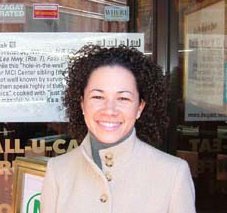
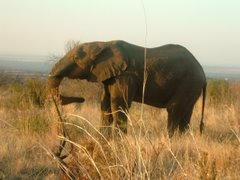

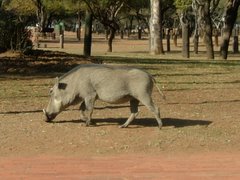
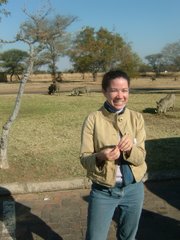
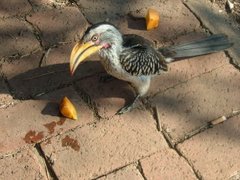
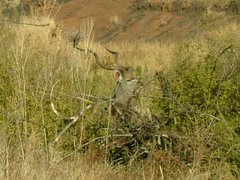
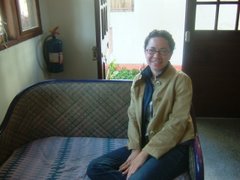
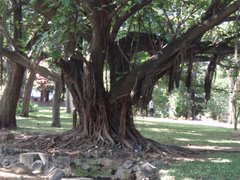
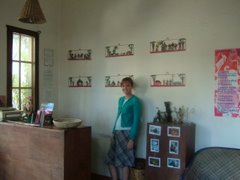
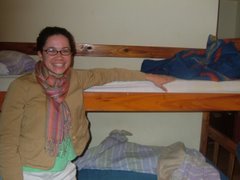
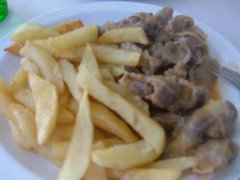
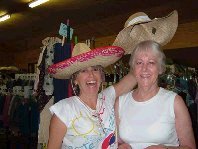

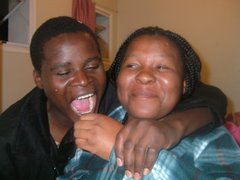
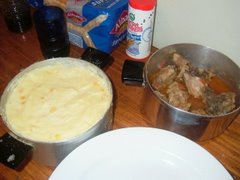
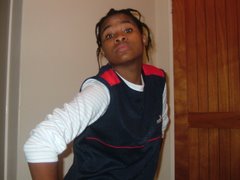
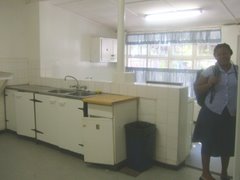
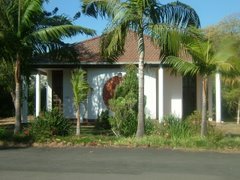
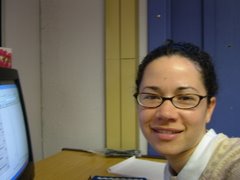
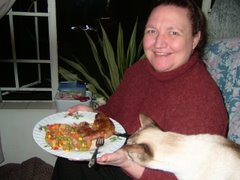
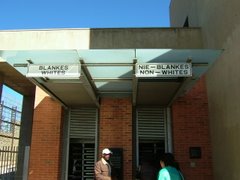
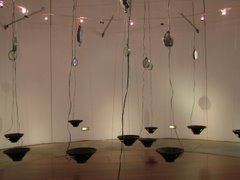
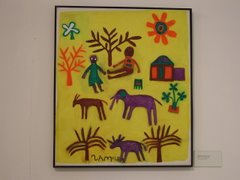
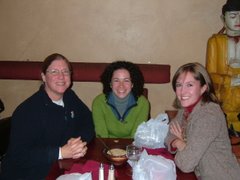
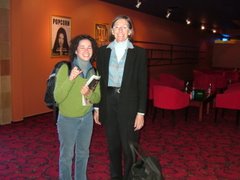

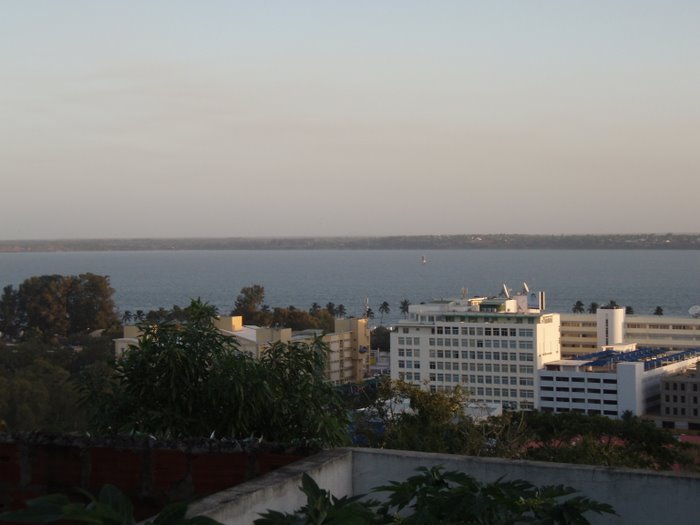
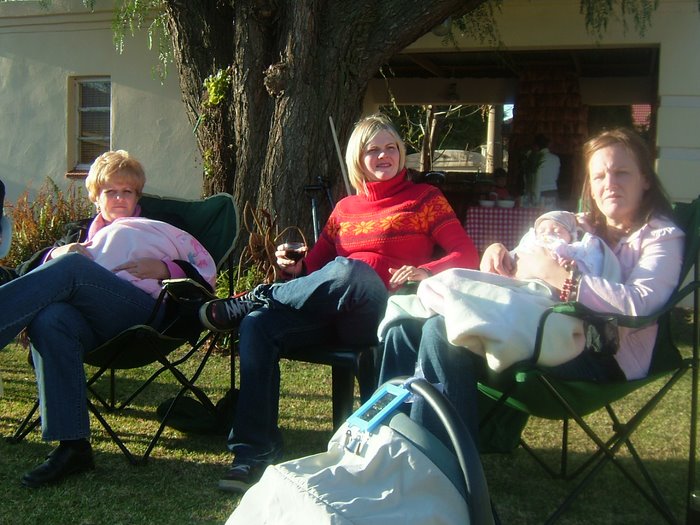
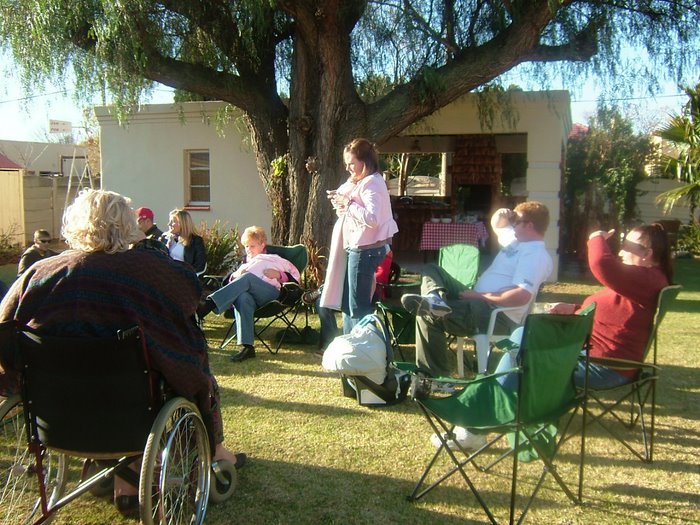
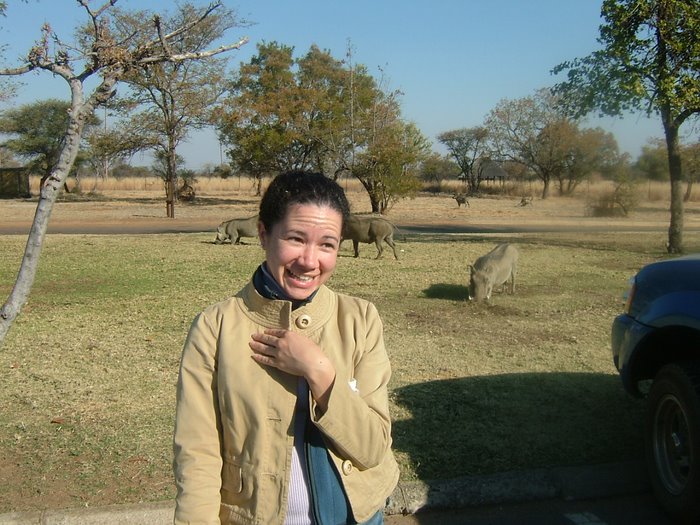
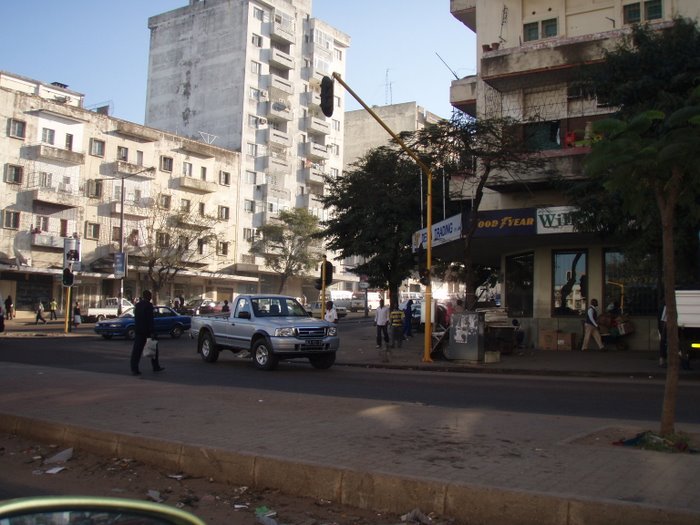
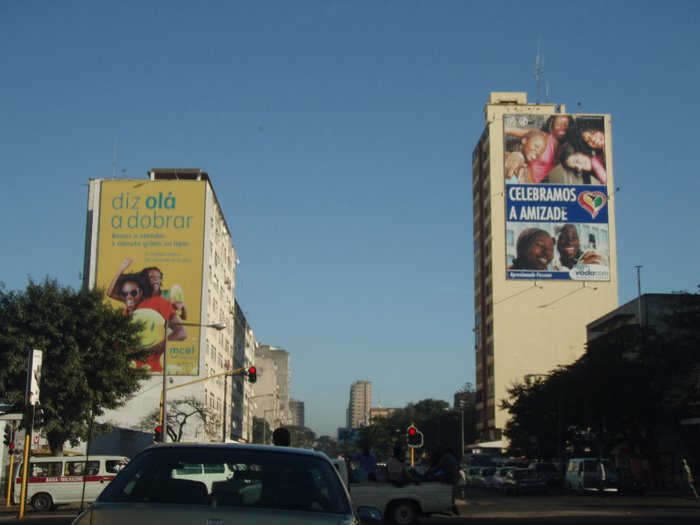
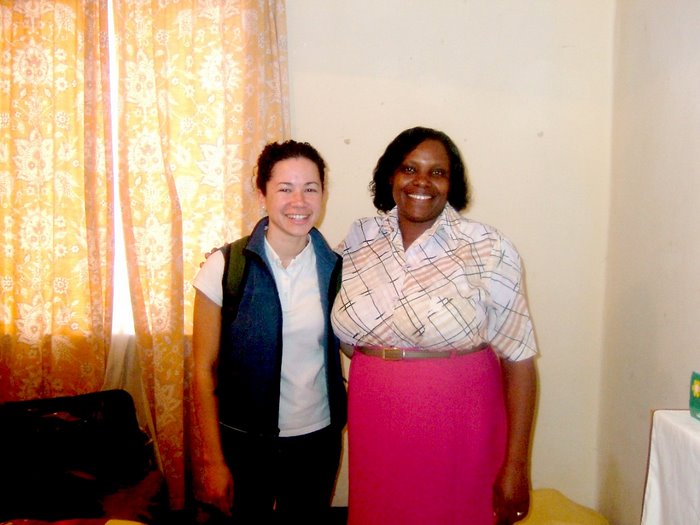
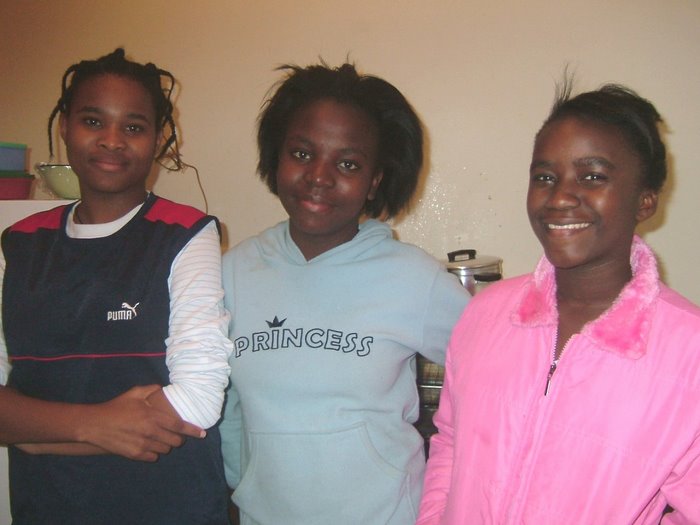
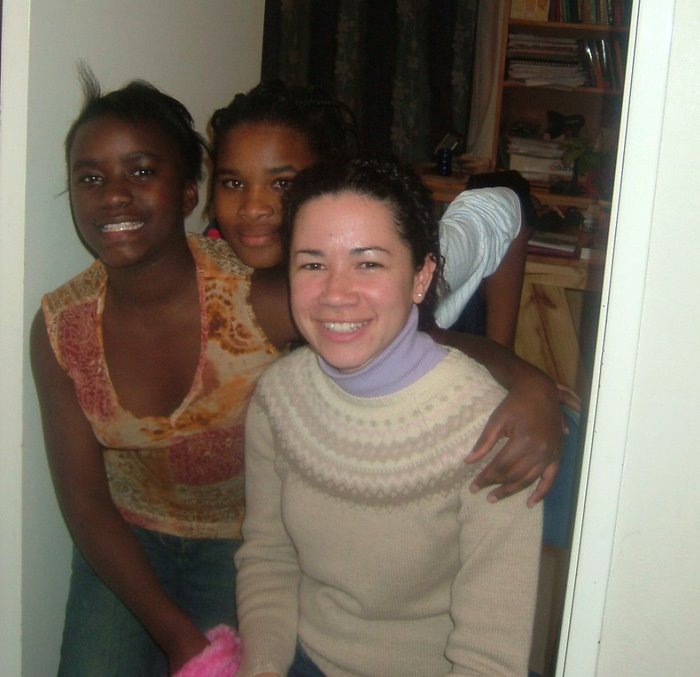
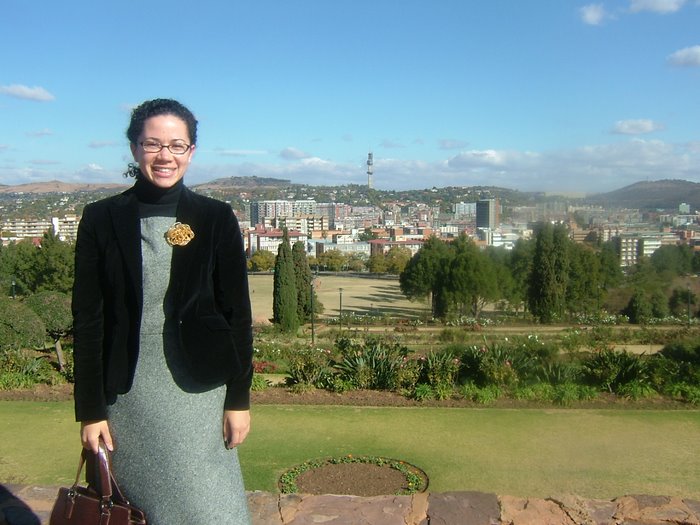
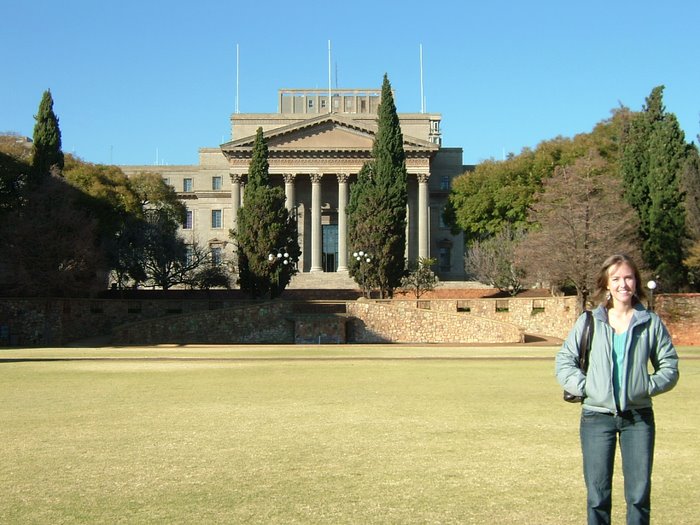
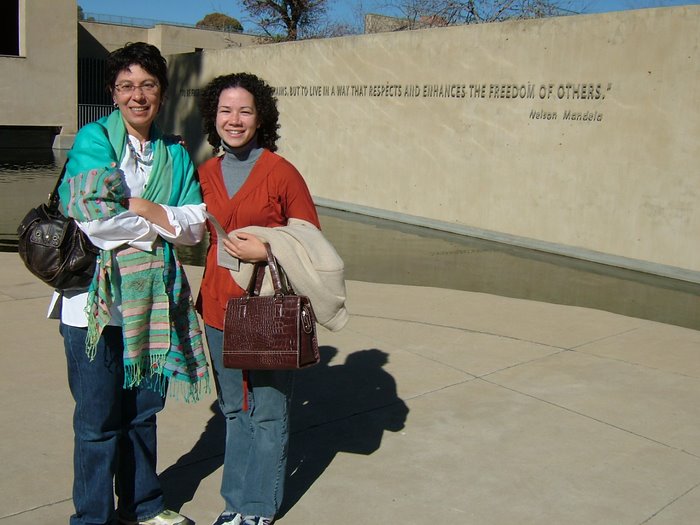
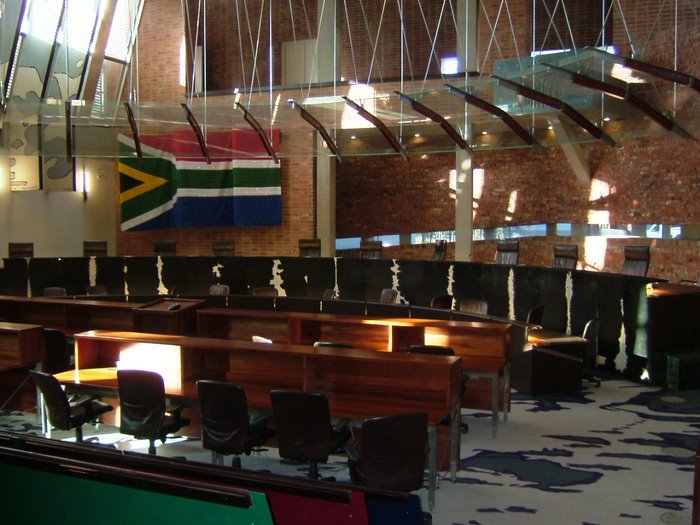
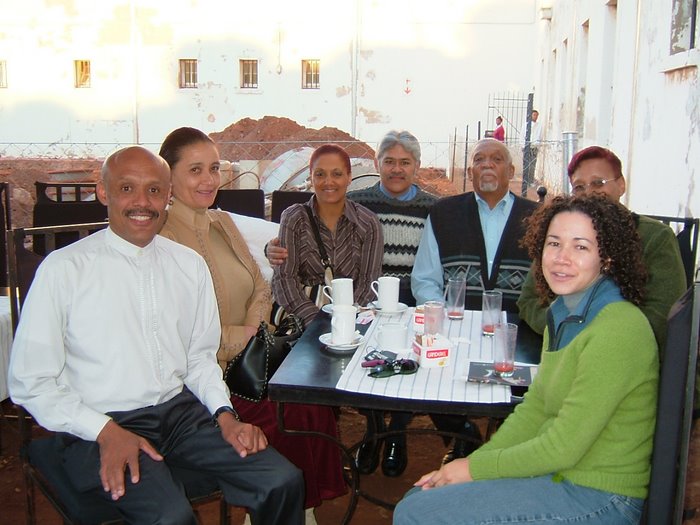
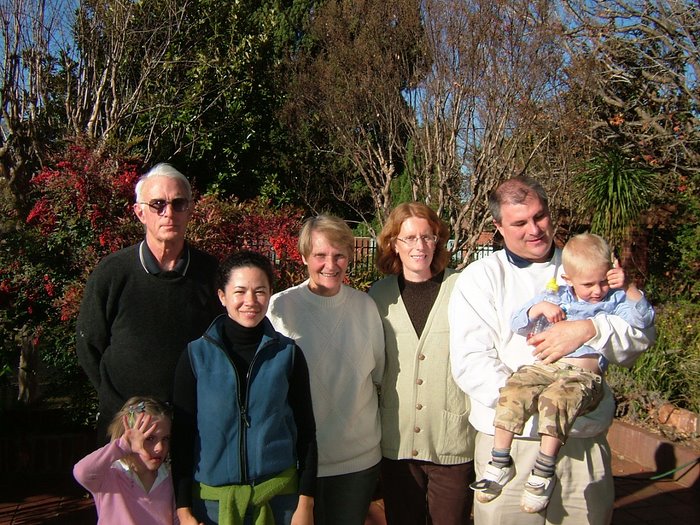
2 comments:
Did you know that the largest red brick building in the southern hemisphere is in Pietermaritzburg? When I was there, Kwazulu and Natal hadn't yet merged, and there was a cult of Englishness in Natal. I saw bumperstickers with the Brit flag and the slogan: Natal the last outpost. Natal had been a separate English colony until after the Boer War. There's even a monument in a city park to the soldiers who died fighting on the English side in the Boer War. Not something you're likely to see in Pretoria.
K, somebody who likes getting in your "bizness" called and woke me up, asking if i had read your latest post. When i woke up this morning i had to call her and ask her to remind me what we had even talked about on the phone. I guess that is what it feels like to wake people up in the middle of the night :) So i just got through reading and i am so speechless, thankful, and inspired by what you have written here. Law Kristian??!!? are you KIDDING Me!?!?! Where's your first novel?
Aaaaaaaand it SNOWED?!?! All that...AND IT SNOWED!!!
Have a beautiful week :) and thank you for sharing your life with us like this. Thank you for sharing those beautiful people too.
Post a Comment